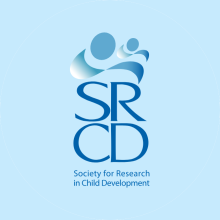August 2008 Spotlight on the SRCD Policy Fellow: Glenetta Hudson Harris, Ph.D.
2007-2008 Federal Executive Branch Policy Fellow
My first year as a fellow has literally sped by and continues to be an amazing journey that has taken me through many intriguing pathways. The most exciting part of my fellowship includes being able to partake in multiple projects that allow me to bridge research and policy. My experience has shown me that there are different ways to conceptualize how developmental research can impact policy and practice.
I have just embarked upon my 2nd year as a SRCD Executive Branch fellow and continue a joint appointment at the Office of Head Start (OHS) and the Office of Planning, Research and Evaluation (OPRE) within the Administration for Children and Families.OHS is a program office that administers grants to agencies that provide comprehensive child development services for low-income families through Head Start and Early Head Start Programs. OPRE is a research office that advises the Assistant Secretary for Children and Families on ways to improve the effectiveness and efficiency of programs in order to enhance the economic and social well-being of children and families. OPRE is also involved in research and policy analysis in addition to providing guidance on performance measurement, research and evaluation methods and dissemination of research findings.
As a liaison between OHS and OPRE, I continue to serve as the lead for federal meetings between the two offices. These meetings serve as a venue for discussing the latest research and programmatic initiatives occurring at both offices. This position as a liaison has allowed me to learn the complexities of navigating the relationships between research and programming.
This past summer, I managed a team of program and research specialists at the National Head Start Research Conference - a venue for researchers, practitioners and policymakers to learn and dialogue about the latest research and policies pertaining to Head Start. The team played a major role in efforts to disseminate relevant research to practitioners in creative ways following the conference, including practitioner-friendly research briefs and conference presentation summaries.
In addition, I have been involved in other dissemination activities. OHS is in the process of launching a research to practice section on their website - the Early Childhood Learning and Knowledge Center. My role in this massive team effort has included managing contractors and ensuring that the latest ACF funded child development and educational research is available for practitioners to use in a variety of ways.
I have also been able to build upon my writing skills by translating scientific, technical research findings into succinct material for Head Start programs and senior OHS federal staff. For example, I have recently completed a brief on teacher-child relationships. The purpose of the brief was to highlight major research findings and help programs understand the benefits of teacher-child relationships on the socio-emotional and behavioral outcomes of preschoolers and later school outcomes. I have also gained valuable experience in summarizing findings from major ACF funded national research projects for senior federal staff as a part of the clearance process at ACF.
The culture of science and policy do not have to be contrasting entities. To me, the art of being a fellow has been finding interesting ways to bring these two seemingly contrasting worlds together. A wonderful advantage to being a fellow is having rich opportunities to learn about and contribute to both worlds. I look forward to the start of another fellowship year.
